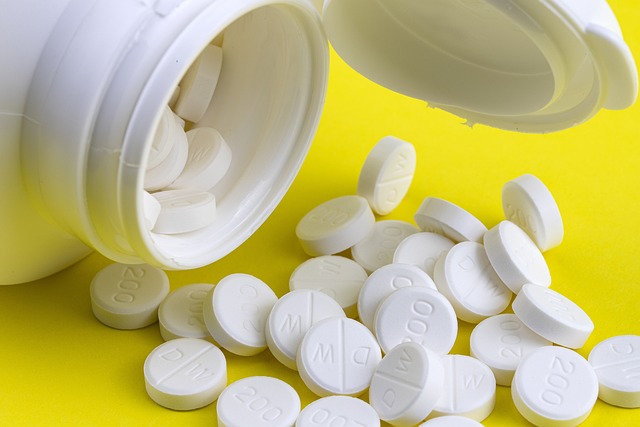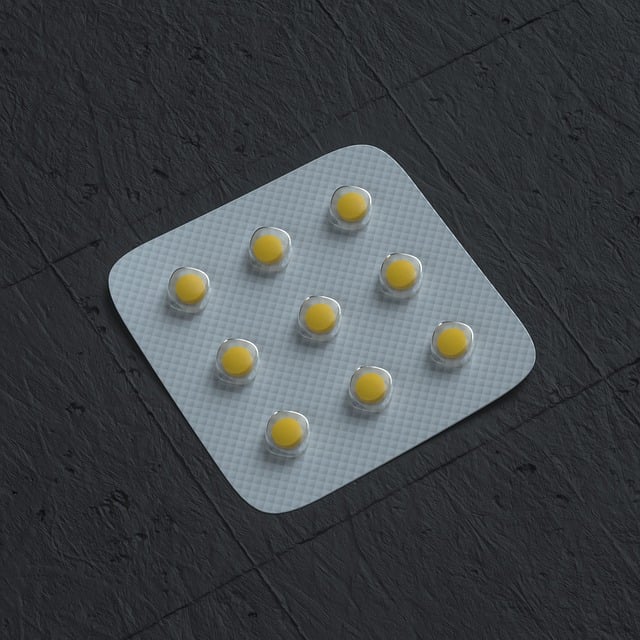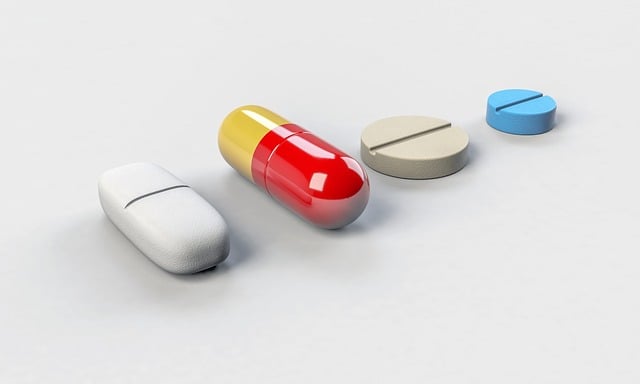Postoperative recovery involves a personalized treatment approach that combines effective medical interventions with targeted physical therapy. Medication is a key component for managing pain, preventing infection, and reducing complications, requiring careful coordination between the patient and healthcare providers to tailor the regimen to individual needs. Physical therapy is essential for restoring motion and strength, enabling patients to gradually resume normal activities and reach pre-surgery functional levels. Monitoring vital signs and wound healing progress is critical for early detection of issues and timely treatment adjustments. A precise approach to pain management, with strict adherence to prescribed medications, is fundamental for comfortable and effective recovery. Regular follow-up appointments allow healthcare providers to customize medication based on patient responses, ensuring optimal pain relief and healing support. Nutritional therapy is also a vital aspect of recovery, with a balanced diet rich in proteins, vitamins, and essential nutrients playing a crucial role in supporting the body's natural healing process. Additionally, addressing the mental health component of recovery is important for overall well-being, with support systems and alternative therapies like mindfulness complementing medical treatment to foster emotional resilience during the healing journey. A comprehensive recovery plan that integrates these elements leads to the best possible health outcomes post-surgery.
Embarking on post-surgery recovery is a journey that requires careful planning and support. This article serves as a comprehensive guide for those navigating this path, offering insights into the multifaceted aspects of healing. We’ll explore the pivotal role of medication management in alleviating pain and facilitating recovery, the importance of tailored nutritional strategies to enhance healing, the critical impact of physical therapy in rebuilding strength and mobility, and the significance of emotional well-being and support systems. By understanding these elements, individuals can better manage their post-operative experience and expedite their return to health and vitality. Join us as we delve into the essentials of post-surgery recovery, ensuring you have the tools for a successful treatment trajectory.
- Understanding Post-Surgery Recovery: An Overview of Key Considerations
- Medication Management Post-Surgery: A Guide to Pain Relief and Healing
- Nutritional Strategies for Optimal Post-Surgery Healing and Recovery
- Physical Therapy and Rehabilitation: Essential Steps in Post-Surgery Recovery
- Emotional Well-being and Support Systems During Post-Surgery Recovery
Understanding Post-Surgery Recovery: An Overview of Key Considerations

Following surgical intervention, a structured approach to recovery is pivotal for optimal healing and outcome. Patients should collaborate closely with their healthcare providers to tailor a treatment regimen that aligns with their unique postoperative needs. Medications prescribed as part of the treatment plan play a crucial role in managing pain, reducing the risk of infection, and preventing potential complications. Physical therapy exercises are often incorporated to restore range of motion and strength, ensuring a gradual return to daily activities and pre-surgery levels of function.
Monitoring vital signs and indicators of wound healing is essential throughout the recovery process. Regular check-ups allow healthcare professionals to assess progress, make necessary adjustments to the treatment, and provide guidance on lifestyle modifications that support recovery, such as dietary recommendations and activity restrictions. Adherence to the prescribed medication schedule, coupled with engagement in recommended physical activities, forms the cornerstone of a successful post-surgery recovery trajectory, ultimately facilitating a smoother transition back to health.
Medication Management Post-Surgery: A Guide to Pain Relief and Healing

Post-surgery recovery involves a delicate balance between managing pain and facilitating the healing process. Effective medication management is pivotal in this phase. Patients should adhere strictly to their healthcare provider’s prescribed treatment regimen, which often includes pain relief medications such as opioids, NSAIDs, or local anesthetics. These treatments are designed not only to alleviate discomfort but also to reduce inflammation and promote tissue repair. It is essential to take medication as directed, neither omitting doses nor exceeding the prescribed amounts, as this can impede recovery and increase the risk of complications. Additionally, understanding the timing of medication administration in relation to meals or activities can enhance their effectiveness and improve overall comfort during the recuperation period. Engaging with a pharmacist or healthcare provider to discuss any concerns or side effects is also highly recommended to ensure safe and effective pain management post-surgery.
Monitoring and adjusting medication based on the patient’s response is another critical aspect of post-operative care. Regular follow-up appointments allow medical professionals to assess pain levels, evaluate healing progress, and modify the treatment plan as necessary. This dynamic approach to medication management ensures that patients receive the right amount of medication at the optimal times, which not only aids in pain relief but also supports the body’s natural healing abilities. Communication with healthcare providers about any changes in how the patient feels—such as increased pain or unexpected side effects—is crucial for timely intervention and adjustment of the treatment plan to promote better outcomes.
Nutritional Strategies for Optimal Post-Surgery Healing and Recovery

Following surgical intervention, the body’s healing process is critical, and proper nutrition plays a pivotal role in facilitating this recovery. A balanced diet rich in essential nutrients is imperative for supporting tissue repair, managing pain, and preventing infection. Proteins are particularly important as they are the building blocks of new tissues; patients should aim to include lean meats, dairy products, legumes, and nuts in their post-operative meals. Additionally, adequate hydration cannot be overstated, as it aids in flushing out toxins and maintaining organ function.
Post-surgery recovery also necessitates careful consideration of micronutrients, including vitamins and minerals that are vital for healing. Vitamins C and E, along with zinc and iron, support wound healing and immune system function. It is advisable to consume fruits and vegetables high in these nutrients, as well as whole grains and fortified cereals to ensure a comprehensive intake of these essential elements. Furthermore, patients should consult with their healthcare providers to tailor their dietary plans according to their specific medical conditions and the type of surgery they have undergone, ensuring that their treatment regimen includes a sound nutritional strategy for optimal recovery.
Physical Therapy and Rehabilitation: Essential Steps in Post-Surgery Recovery

Engaging in physical therapy and rehabilitation is a cornerstone of post-surgery recovery, playing a pivotal role in restoring function and mobility. Postoperative care typically includes a tailored physical therapy regimen designed to address the specific needs of the patient’s condition. Through a series of exercises and interventions, patients can gradually strengthen muscles, improve range of motion, and enhance overall health, which are essential aspects of the healing process. Physical therapists employ a variety of treatment modalities—ranging from manual therapy techniques to advanced technologies like electrical stimulation—to facilitate recovery and reduce the risk of complications. These interventions not only aid in the physical aspect but also contribute to mental well-being by fostering confidence and independence as patients regain their abilities.
In the initial stages following surgery, the focus of rehabilitation is often on pain management and preventing stiffness or adhesions. Gradually, the intensity and complexity of exercises increase, with the aim of restoring pre-surgery function or achieving a new level of capability. Regular follow-ups with healthcare providers ensure that the treatment plan remains aligned with the patient’s progress, allowing for adjustments to be made as needed. The collaborative effort between patients, physical therapists, and medical professionals ensures that each step in the recovery process is meticulously planned and executed to optimize outcomes in post-surgery rehabilitation.
Emotional Well-being and Support Systems During Post-Surgery Recovery

Navigating the post-surgery recovery phase is not solely about physical healing; it encompasses a patient’s emotional well-being, which is equally vital for a holistic recovery. The mental and emotional aspects of recovery can be as challenging as the physical ones. Patients often experience a range of emotions such as anxiety, fear, and frustration due to the changes in their daily routines and the need for dependence on others. It is crucial for individuals to recognize that these feelings are normal and part of the healing process. Establishing a robust support system can greatly influence emotional recovery; this includes family, friends, support groups, or professional counselors who provide a listening ear, encouragement, and practical assistance. Engaging with such support networks can alleviate feelings of isolation and help maintain a positive outlook during the recuperative journey.
Complementary to the physical treatments prescribed by healthcare providers, medication may also play a role in managing emotional well-being. Psychotropic drugs, when necessary, can be part of a comprehensive care plan to address conditions like depression or anxiety that may arise post-surgery. Additionally, alternative therapies such as mindfulness and meditation, which are often recommended as part of the recovery process, can contribute positively to mental health by reducing stress and promoting relaxation and resilience. It is important for patients to maintain open communication with their healthcare team to monitor and adjust their treatment regimen to ensure both physical and emotional healing progress in tandem.
Effective post-surgery recovery is a multifaceted process that encompasses treatment, medicine, nutritional support, physical therapy, and emotional well-being. This article has outlined the critical aspects of this journey, emphasizing the importance of comprehensive care in ensuring a smooth transition back to health. By following expert guidance on medication management, adopting strategic nutritional plans, engaging in tailored physical therapy, and fostering robust support systems, individuals can navigate their recovery with greater confidence and resilience. As patients embark on this path of healing, the insights provided here aim to serve as a guiding light, illuminating the road ahead towards recovery and wellness.
